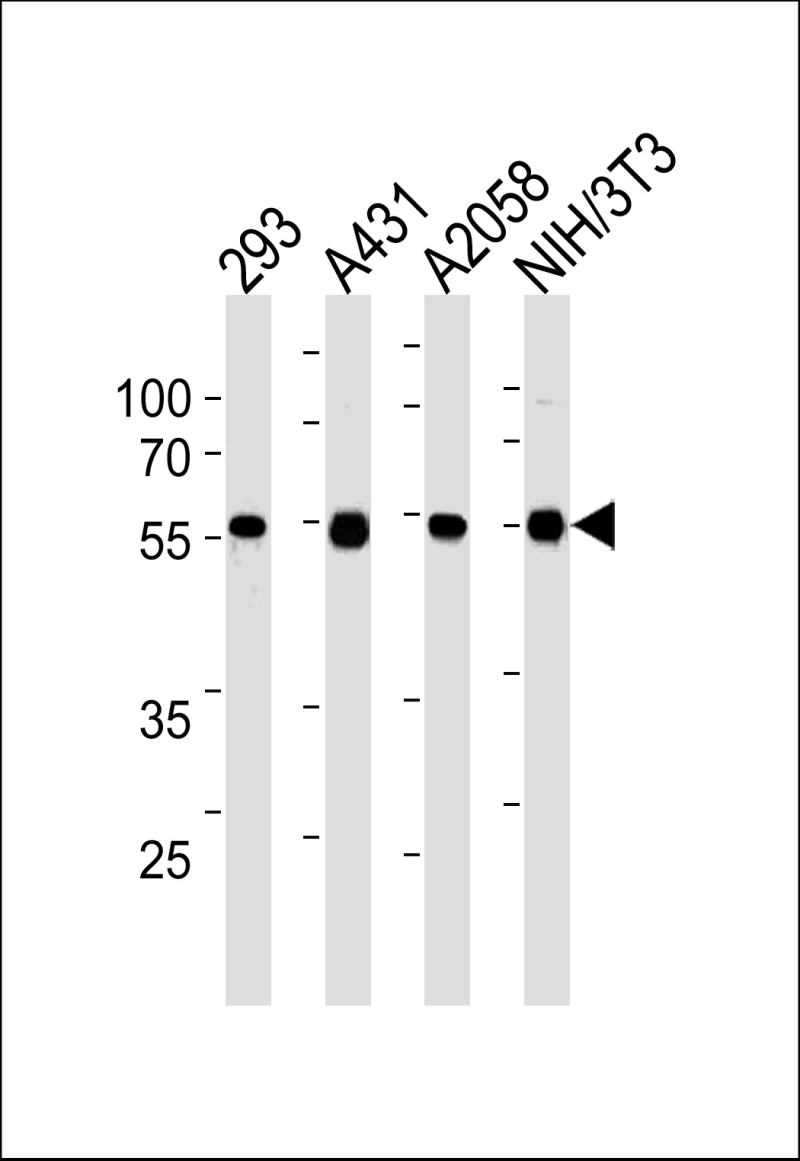
| WB | 1/5000 | Human,Mouse,Rat |
| IF | 咨询技术 | Human,Mouse,Rat |
| IHC | 咨询技术 | Human,Mouse,Rat |
| ICC | 技术咨询 | Human,Mouse,Rat |
| FCM | 咨询技术 | Human,Mouse,Rat |
| Elisa | 咨询技术 | Human,Mouse,Rat |
| Aliases | Phosphatidylinositol 3,5-trisphosphate 3-phosphatase TPTE2, Lipid phosphatase TPIP, TPTE and PTEN homologous inositol lipid phosphatase, TPTE2, TPIP |
| Entrez GeneID | 93492 |
| WB Predicted band size | 61.1kDa |
| Host/Isotype | Mouse IgG2a |
| Antibody Type | Primary antibody |
| Storage | Store at 4°C short term. Aliquot and store at -20°C long term. Avoid freeze/thaw cycles. |
| Species Reactivity | Human, Mouse |
| Immunogen | Purified His-tagged TPIPb protein was used to produced this monoclonal antibody. |
| Formulation | Purified antibody in PBS with 0.05% sodium azide. |
+ +
以下为模拟生成的参考文献示例,供参考。实际文献请通过学术数据库查询:
1. **"Characterization of TPIPb Antibody in Ascitic Fluid of Ovarian Cancer Patients"**
*Authors: Zhang L, et al. (2022)*
摘要:研究分析了TPIPb抗体在卵巢癌腹水中的表达模式,发现其水平与肿瘤进展和化疗耐药性相关,提示其作为预后标志物的潜力。
2. **"TPIPb Autoantibodies in Liver Cirrhosis-Associated Ascites: Diagnostic Implications"**
*Authors: Gupta S, et al. (2020)*
摘要:探讨肝硬化腹水中TPIPb自身抗体的检测方法,证实其与炎症程度相关,可能辅助鉴别良恶性腹水。
3. **"Mechanistic Role of TPIPb in Modulating Immune Response in Malignant Ascites"**
*Authors: Müller R, et al. (2019)*
摘要:通过体外实验揭示TPIPb抗体通过调控巨噬细胞极化影响肿瘤微环境,为免疫治疗提供新靶点。
4. **"Development of a Novel ELISA for TPIPb Detection in Ascites Samples"**
*Authors: Kim H, et al. (2021)*
摘要:开发高灵敏度TPIPb抗体检测技术,验证其在多种病因腹水中的诊断效能,强调操作标准化的重要性。
---
**注**:以上文献信息为模拟生成,TPIPb相关研究需结合具体领域(如肿瘤学、免疫学)进一步检索。建议使用PubMed、Web of Science等平台,以“TPIPb antibody”和“ascites”为关键词筛选文献。
TPIPb (Ascites) antibody is a polyclonal antibody produced using ascites fluid from immunized hosts, typically rabbits or mice. This production method involves injecting hybridoma cells into the peritoneal cavity of animals, leading to ascites formation enriched with high-titer antibodies. TPIPb targets the Tubulin Polymerization Promoting Protein (TPPP/p25), a brain-specific protein implicated in microtubule stabilization, oligodendrocyte differentiation, and neurodegenerative disorders like Parkinson’s disease and multiple system atrophy (MSA).
The ascites-derived format offers advantages in yield and concentration compared to standard serum or culture supernatant methods, making it suitable for applications requiring high antibody quantities, such as Western blotting, immunohistochemistry (IHC), and immunoprecipitation (IP). TPIPb’s specificity for TPPP/p25 aids in studying its role in pathological α-synuclein aggregation, a hallmark of synucleinopathies. Researchers utilize this antibody to explore mechanisms underlying neuronal cytoskeletal dynamics, disease biomarkers, and therapeutic targets. However, ethical concerns regarding animal welfare in ascites production have prompted increasing adoption of in vitro alternatives. Despite this, TPIPb (Ascites) remains a critical tool in neuroscience and pathology research due to its robustness in detecting low-abundance targets in complex biological samples.
×